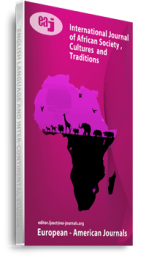This paper is a summary of lessons learnt and results from the implementation of the UNDP GEF Project on Lake Tanganyika in Zambia implemented between December 2008 and December 2013. The purpose of the project was to reduce sedimentation in the inflowing rivers of the Lake Tanganyika basin through cross-sectoral measures that help limit soil erosion and seek to halt and reverse deforestation. The project had people focus in that it aimed at providing alternative income-generating activities. The key objective of the project was achieved in that the capacity of Stakeholders in the lake catchment to manage and sustainably use agricultural and forest resources to reduce sedimentation and conserve biodiversity was built. Several people in the Mpulungu and Kaputa catchment of the Lake Tanganyika took up alternative income-generating activities such as fish farming, market gardening and chicken rearing. A revolving fund was created and linked to the Zambian National Farmers Union for sustainability reasons. The revolving fund will allow members of the community to borrow and pay back finances for income-generating activities for a long time to come.
Keywords: Implementation, Project, UNDP GEF, Zambia, lake tanganyika, lessons, sucesses

